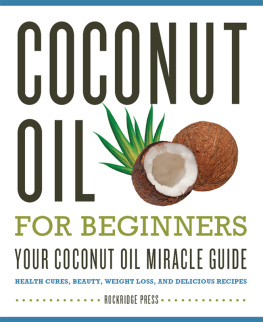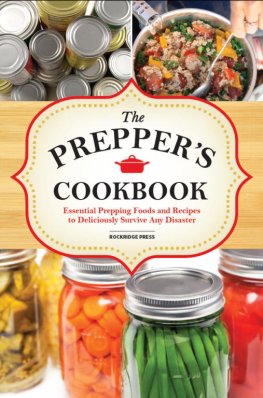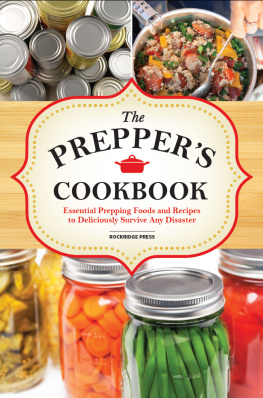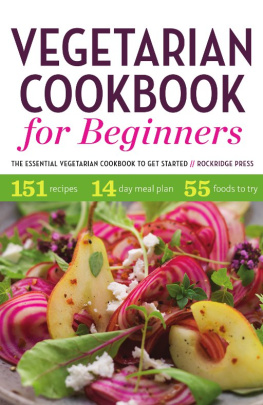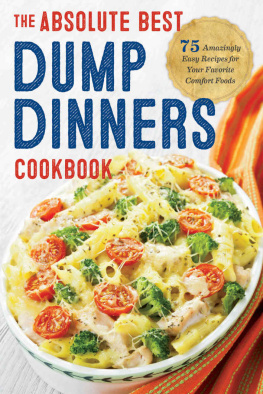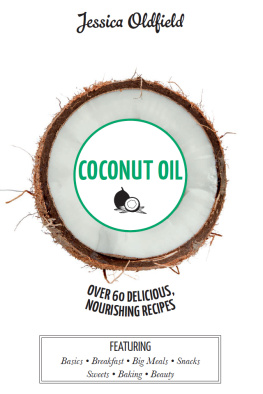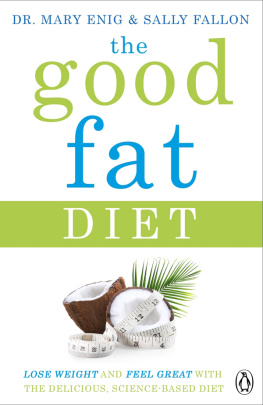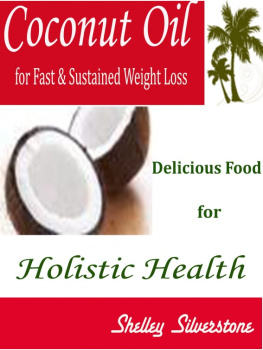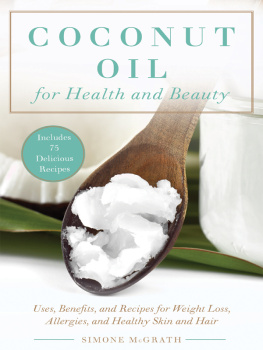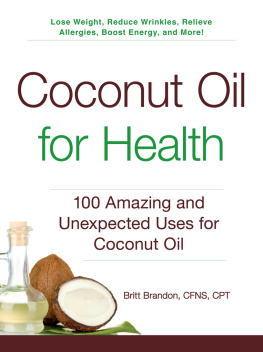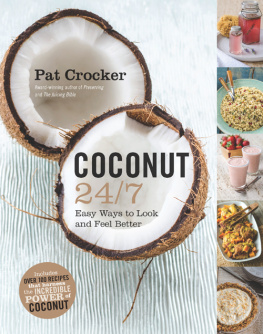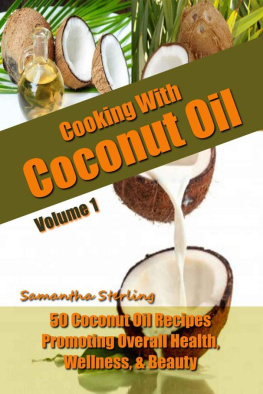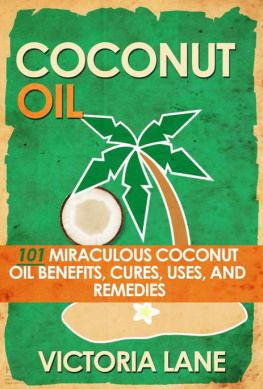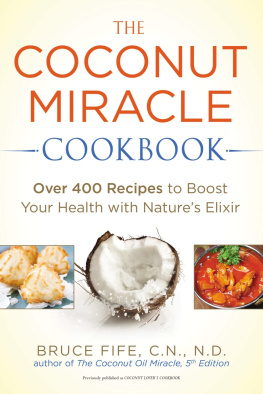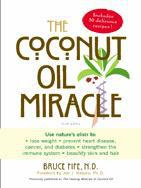INTRODUCTION TO COCONUT OIL
W elcome to the world of coconut oil! If youre looking for information about the latest, greatest ingredient to hit the health-food and natural-healing scenes, then youve come to the right place. But be prepared, because coconut oil is nothing new; its been around for centuries but was demonized in Western society along with every other form of saturated fat back in the 1960s. Fortunately for us, those who knew that all saturated fats werent actually bad for you didnt stop using coconut oil.
The coconut has been a staple crop for thousands of years throughout coastal regions of North and South America, Asia, Africa, as well as in the Pacific Islands. The oil, in particular, has so many uses that an exhaustive list would take up the next four pages. The ones that were going to be focusing on throughout the following chapters are:
- Health
- Beauty
- Weight loss
- Cooking
This book presents a brief history of coconut oil, along with what its traditional uses have been. It also explains exactly why coconut oil shouldnt be lumped in with other bad saturated fats, and it covers the different extraction and packaging methods so you know what to look for when you go out to buy your own. Finally, this book shares some marvelous recipes for meals, soaps, conditioners, massage oils, and even deodorants that are made from this incredible oil.
Are you ready to get to it? If so, then lets talk coconut!
SECTION ONE
Coconut Oil Basics
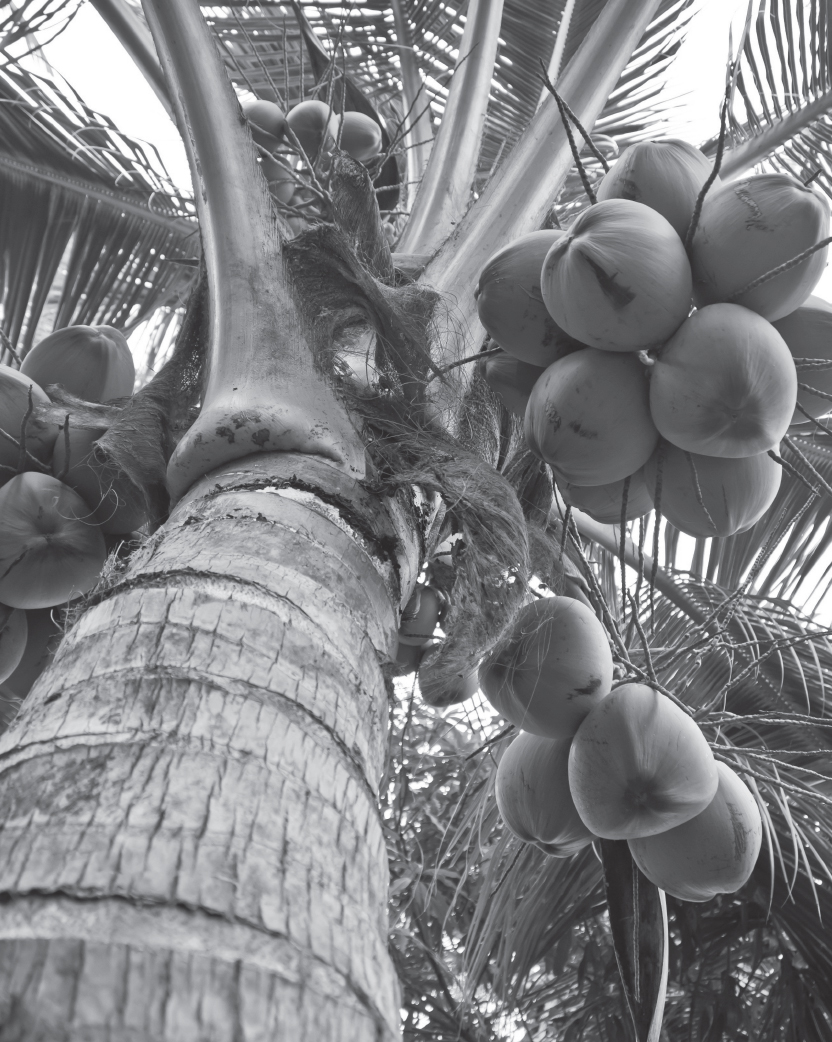

A BRIEF HISTORY OF COCONUT OIL
K nown also as the Tree of Life, the coconut palms origin is unknown. Many botanists, however, lean toward it being an Old World plant originally from Polynesia or the Indian Archipelago because there are more varieties of palms in those places than anywhere else. Nonetheless, the true roots of the tree are a mystery. What we do know is that the earliest written reference to a coconut comes from a fifth-century traveling merchant and monk named Cosmas Indicopleustes.
Cosmas described the trees and referred to the India nuts in text and in pictures when describing Sri Lanka and other places. Since he described the harvesting and use of the coconuts, its safe to assume that they predate the fifth century by quite a bit; otherwise the procedures wouldnt have already been established.
Who Grows Coconuts?
Though coconut palms are present in just about every tropical coastal area that you can imagine, concentrated production and harvesting occur in significant proportions in only a handful of countries. However, in places where coconut harvest does occur, it often accounts for a pretty big chunk of the local economy. The countries that produce and export the most coconut oil are:
- Philippines
- Indonesia
- India
- Vietnam
- Mexico
- Papua New Guinea
- Thailand
- Sri Lanka
- Malaysia
- Mozambique
- Cte dIvoire
- Tanzania
- Nigeria
- Samoa
- Ghana
The first five countries account for the vast majority of coconut oil production, but quality products come from the other exporters as well. Also, these are just the countries that export it; many others produce it in small quantities for personal or community use.
Cool Coconut Fact
Coconut palms grow in tropical regions as far north as Hawaii and as far south as Madagascar, and it takes from nine to twelve months for a coconut to mature.
Historical Uses of Coconut Oil
Because theyre used for so many purposes beyond simple nutrition, coconuts are known as functional foods. For centuries, people from coastal Asia, the Pacific Islands, Mexico, South America, and Africa have used coconut oil for everything from spiritual ceremonies to maintaining healthy skin to treating a multitude of illnesses. Here are just a few specific purposes that coconut oil has traditionally been used for:
- Hair conditioning
- Skin moisturizing
- Rubbing on babies to ensure good health and strong bones
- Heartburn
- Ulcers
- Reducing fevers
- Wound healing
- Maintaining a healthy heart
- Healthy bones
- Sunscreen
- Scar avoidance
- Cognitive function
- Adding delicious flavors to foods
- Crispy pastry crusts
- Source of nutrition
- Perfume
- Soap
- Base for cosmetics, both rudimentary and modern
- Treating skin conditions such as scabies, ringworm, and dermatitis
- Dental health
- Natural deodorant
Today, science backs up what natural healers already know: Its an antifungal, antibacterial, and antiviral as well as a source of medium-chain triglycerides (see ). Researchers had given scientific credence to the wisdom gained by eons of trial and error.
Remember that all of these benefits were derived from coconut oil that was extracted naturally and gently, with no heat and no chemical processing that could damage the delicate antioxidants and other healthy ingredients. That makes a big difference, and you need to be aware of how your potential coconut oil was extracted before you buy it.
Coconut Oil Extraction Methods
The way that the oil is extracted from the coconut makes all the difference in the world to its healthfulness and flavor. As a matter of fact, it was the extraction and preparation method that earned coconut oil trouble way back in the 1960s. We will review the ways that coconut oil may be extracted and processed so you know what to look for when youre buying yours.
Before we get into the actual methods, it is important to note that the process involves either freshly dried meat or a combination of raw or dried meat and coconut milk. The former is called a dry process and the latter is called a wet process.
Pressing
For thousands of years, a cold-press method has been used that simply involved removing the meat from the mature nut, drying it, and then pressing the oil from the dried meat (or copra). The meat may be dried using the sun, fire, smoke, or a kiln. Its important that the coconut be mature so that the meat is thick and has absorbed all of the nutrient-rich, flavorful milk. After being pressed out of the meat, the milk and oil mix is allowed to settle for a day or two. During that time, known as the fermentation time, three layers will form: a top layer of cream and layers of protein and water.
Cold-pressing simply means that there is low or no heat used in the process, because heat can damage the nutrients and enzymes in the oil. Sometimes heat is used in the pressing method to extract more oil, but in general, a cold-pressing method, either manually or by machine, is preferred.
Aqueous Processing
The coconut meat is boiled in water until it gets soft and releases the oils. The coconut oil rises to the top and is collected. Boiling will destroy the antioxidants and many of the delicate nutrients found within the meat. Coconut oil derived from this process is not desirable for cooking or beauty products.
Centrifugal Extraction
This is a pretty simple method of extraction and can produce a high-quality coconut oil. The meat is placed into a machine that chops it up. The meat then goes through a screw press that takes the milk out. The dry meat finally goes into a high-speed centrifuge that spins the oil out of the meat so that it can be collected.

